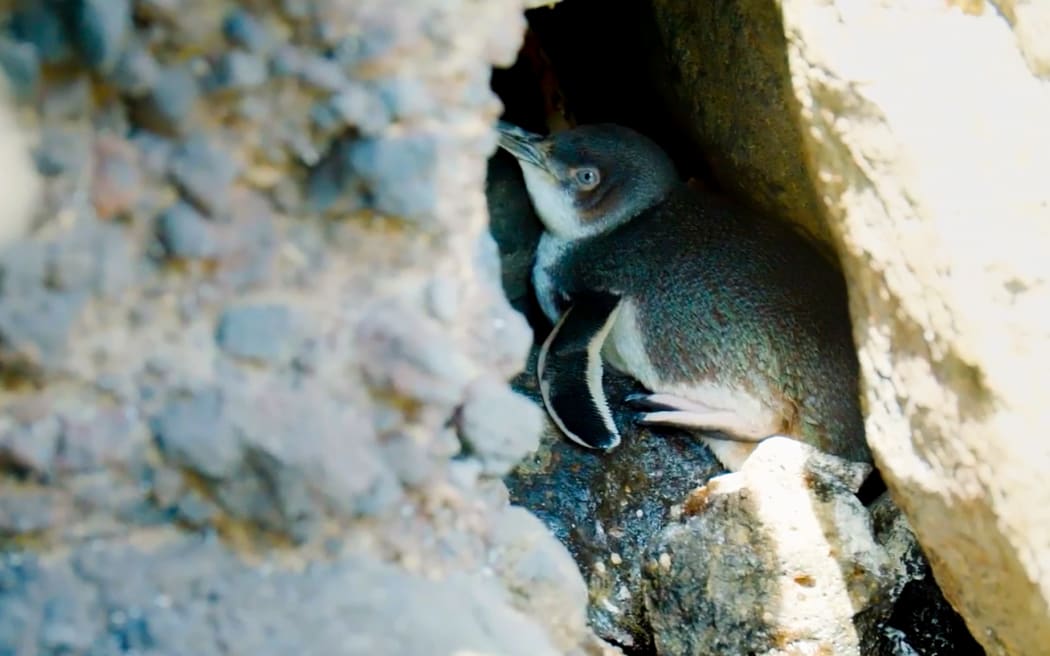
A little blue penguin, or kororā. Photo: RNZ
Waka Kotahi says it has made changes to better protect wildlife after several kororā - little blue penguins were killed during the construction of the Wellington-Petone cycleway.
The Department of Conservation (DOC) issued a formal warning to the Te Ara Tupua Alliance which is building the cycleway after the birds were killed during two months of construction.
An investigation found deaths were not malicious or intentional, but some kororā were killed because required site checks were not completed. Only one reached the threshold for offending under the Wildlife Act.
Waka Kotahi national manager of infrastructure delivery Mark Kinvig said the construction area will be better fenced and monitored - and additional staff training should ensure no repeat of the deaths.
"Immediately after the deaths, we introduced new protections to the project site. We halted construction while this was done, and ensured extra training was given to project staff to understand the project's environmental requirements.
"We put in place a new internal approval process for all activity on site to ensure kororā and other protected wildlife are not put at risk by construction."
Everyone in the project understood the seriousness of the warning and Waka Kotahi fully accepted the findings, he said.
"This incident should not have occurred, and we are doing everything we can to ensure there is no repeat."
Changes and improvements made to the Ngā Ūranga ki Pito-One site
- An additional Kaitiaki role working directly with construction crews, helping site-based workers and leaders with practical ways to protect wildlife and work effectively
- Greater involvement of ecologists in the planning stages of all new construction activity on site as a mandatory requirement before new activity begins.
- Improved and additional fencing along the project area, keeping penguins away from areas where they are at risk, including State Highway 2.
- Increased monitoring to identify any birds that may be in construction zones and highlight them so they can be better protected.
- Larger signs placed on sites marked by the ecology team as being occupied by kororā, and more surveillance and checks on the protection measures in place.
- Additional training and information is being provided to construction staff to make sure they are fully aware of the ecological values of the site and the procedures that must be followed to protect them.


